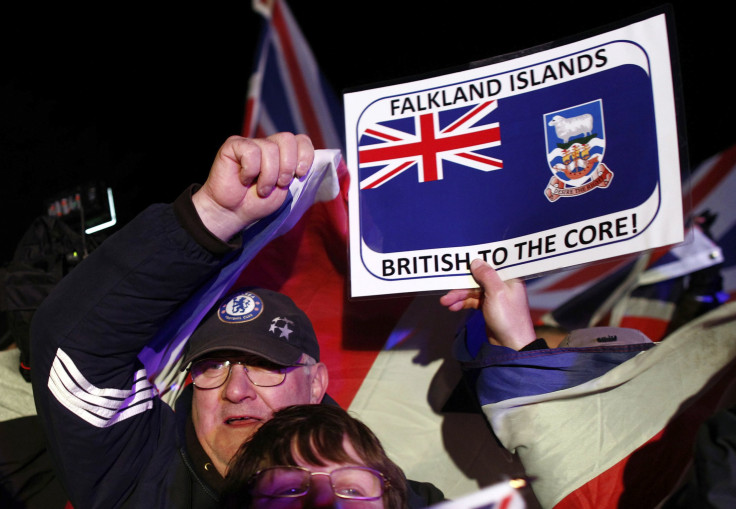Buenos Aires' British Blues: Falkland Islands Delegation Seeks International Support

A delegation of lawmakers from the Falkland Islands has embarked on a tour of the Western Hemisphere to raise support for the wishes of the disputed territory’s residents to remain part of the United Kingdom.
Argentina claims the islands (which it refers to as Las Malvinas) located some 300 miles off its southern coast, and rejected Monday's referendum that almost unanimously reaffirmed support for the islands to remain a British Overseas Territory.
Mike Summers, a member of the Falkland Islands Government’s Legislative Assembly, is leading the eight-member delegation, which has arrived in the U.S. to visit the State Department in Washington and the United Nations in New York. The delegation will also travel to Canada and countries throughout Latin America and the Caribbean.
“We're taking the result of the referendum to various countries to ask for support, to encourage them not to sit on the fence, and to show that this is not an argument between Britain and Argentina, it is a human rights issue,” Summers said, according to Mercopress.
“The vote gives us a strong hand. It is an act of self-determination that nations should be able to support even if they don't support the UK,” he added.
State Department spokeswoman Victoria Nuland acknowledged the referendum (which Argentina declared invalid) and expressed the U.S. government’s stance on the islands’ political status.
“The residents have clearly expressed their preference for a continued relationship with the United Kingdom. That said, we obviously recognize that there are competing claims,” Nuland said in a press conference. “Our formal position has not changed. We recognize the de facto U.K. administration of the islands, but we take no position on sovereignty claims.”
British Prime Minister David Cameron has expressed his support for the referendum and called on Argentina to recognize it.
“The Falkland Islanders couldn't have spoken more clearly. They want to remain British and that view should be respected by everybody, including by Argentina," Cameron said, the Independent reported.
Argentina’s President Cristina Fernandez de Kirchner recently called the referendum “a parody” and emphasized the U.S. position that the dispute remains a bilateral issue between her country and the UK.
The U.K. maintains that the islands’ nearly 2,900 inhabitants represent a third political entity separate from itself and has refused to hold formal discussions over sovereignty, citing that such talks must be approved by the islands’ residents.
The islands have been continuously administered under the United Kingdom since 1833, first as a colony and later as an overseas territory.
In 1982, the Argentine military occupied the islands, sparking a 74-day war that resulted in nearly 1,000 deaths (650 Argentine, 255 British) and the capitulation of Argentine forces.
The United Nations has yet to draft a resolution on the issue of the islands’ sovereignty, but has consistently called upon Argentina and the UK to resolve the dispute, which Buenos Aires has taken as a de facto acknowledgement of the issue as a bilateral one with London.
© Copyright IBTimes 2024. All rights reserved.











